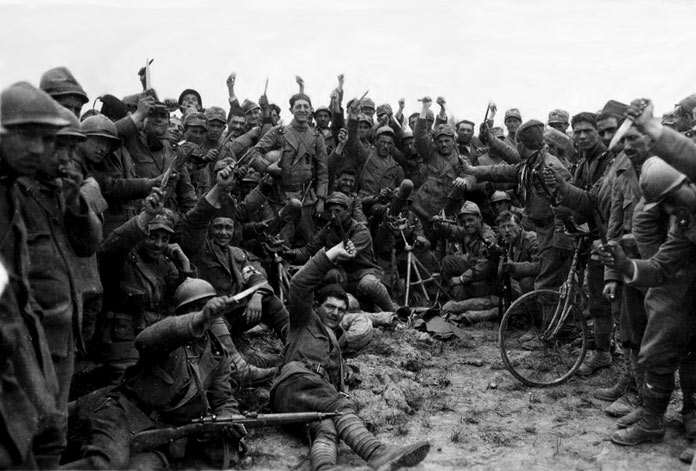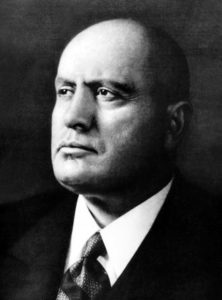Fascism's Words AND Deeds

What is fascism?
In 1968, the historian S.J. Woolf wrote:
Perhaps the word fascism should be banned, at least temporarily, from our political vocabulary. For like other large words – democracy, reactionary, radical, anarchy – it has been so misused that it has lost its original meaning; or, at least, it has been so overlaid with newer and broader connotations that the narrower, historical sense almost seems to require apologetic inverted commas.
This remains true in 2022.
Fascists themselves are partly responsible for this. “[W]e do not believe in dogmatic programmes,” Italy’s fascist dictator, Benito Mussolini, explained:
…we permit ourselves the luxury of being aristocratic and democratic, conservative and progressive, reactionary and revolutionary, legalists and illegalists, according to the circumstances of the moment, the place and the environment.
At one time he claimed “We are libertarians above all, loving liberty for everyone, even for our enemies,” at another, that:
…the individual exists only insofar as he is subordinated to the interests of the state, and as civilisation becomes more complex, so the liberty of the individual must be increasingly restricted.
If we cannot find fascism in the fascist’s words, we can find it in their deeds. What did they do?
Corporatism – Economic fascism
Political scientist Andrew Heywood wrote that the “distinguishing feature” of “Fascist economic thought,
…is the idea of corporatism, which Mussolini proclaimed to be the ‘third way’ between capitalism and socialism…Corporatism opposes both the free market and central planning: the former leads to the unrestrained pursuit of profit by individuals, while the latter is linked to the divisive idea of class war. In contrast corporatism is based upon the belief that business and labour are bound together in an organic and socially unified whole.
To this end, 1926 saw what the historian Denis Mack Smith calls “a limited number of ‘fascist strikes’ [which] were permitted to pressurise the captains of industry into accepting state control.” In July that year:
Mussolini created a special ministry of corporations and explained that a new cooperative machinery, as well as fixing wages and conditions of work, would eventually regulate the whole economy. He thought it possible that one day the corporations would effect what would amount to compulsory recruitment of all Italian citizens for civilian work.
The following year saw the establishment of 22 corporations which represented employers, workers, and government, and were charged with overseeing the development of all the major industries in Italy. Political scientist Roger Eatwell describes how:
In 1930 a National Council of Corporations was set up, which comprised seven large worker and employer organizations. It had no legislative power, but could issue binding orders in matters concerning wages and conditions. By 1934 this had been expanded to include twenty-two sectors of the economy and social life.
In 1939, a chamber of Fasces and corporations was created to replace parliament.

Fascism in deeds, not words.
This is what fascism did. That the program substantially failed reflects more the impossibility of the goal than of any lack of will.
Corporatism was essential to Italian fascism, which “In almost every sense,” according to the historian R.J.B. Bosworth, “constituted the first and truest fascism…”. Mussolini wrote that “the fascist state is corporative or it is nothing” and called the corporations “the fascist institution par excellence”. Corporatism was embraced by the fascists in Britain and France.
We should treat anything Mussolini said with skepticism, but his deeds show that he was no libertarian and was sincere when, by contrast, he argued that:
…the Fascist conception of life stresses the importance of the State and accepts the individual only in so far as his interests coincide with those of the State…
The fascist’s frequently contradictory statements have enabled others to pin the label on almost anyone. And, as fascists are beyond the pale of polite politics, it has enabled almost anyone to be pushed beyond the pale.
Understanding what fascism really is matters and its deeds reveal this. It is the ideology of the all-encompassing state, seen, in economic policy, in corporatism. Not all who believe in massive state intervention in the economy are fascists, but all fascists believe in massive state intervention in the economy. You cannot be a fascist if you don’t believe in that.
John Phelan is an Economist at Center of the American Experiment.
